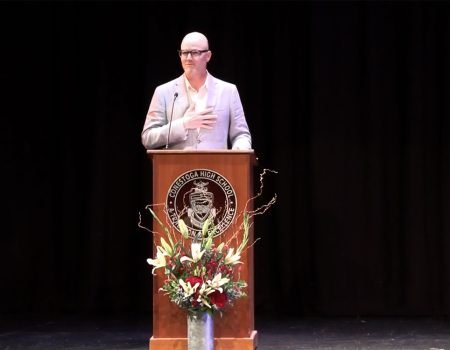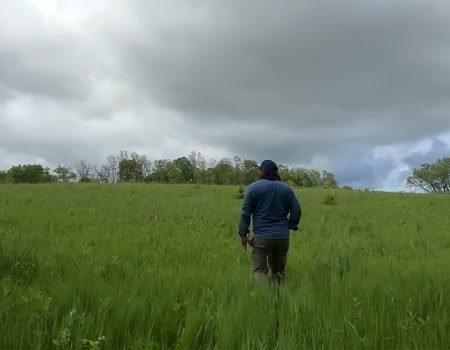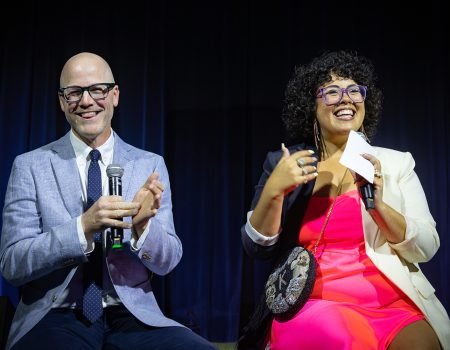Who Knows What’s Waiting In The Wings Of Time
I spent the better part of this morning modeling various hospital gowns.
I’ve had chest pain for a few months. I think. I don’t really remember when it began. But I’ve noticed it more and more as Abbi and I have ramped up our mileage in anticipation of the marathon. It’s not a crushing, debilitating pain. It’s more like an ache, or pressure, or annoyance, on my left side. I imagine it as a patch of something knotted and dark cradling my heart.
I kept figuring it would go away, but it hasn’t. If anything, I’m more aware of it than ever. The pain usually increases from a faint buzz (maybe a .1 out of 10) to a light ache (a 2, max) in the first five minutes of a run. Then it goes away. Usually.
I’ve heard plenty of stories about all those guys who just drop dead while running and everyone says, “But he was so healthy!” Still, that’s not quite what motivated me to check it out. It was two things: a recent article in Wired Magazine about a 43-year-old, long-time editor who dropped dead during a marathon, and Abbi’s insistence. (“Men need to be pushed to go to the doctor,” I conceded this afternoon.) So maybe it was one thing.
My first gown was kind of a powder blue with white trim. The fabric was scratchy. I wore it open in the front, and walked freely throughout the office thinking (only half in jest, ‘I make this thing look good.’
The nurse took blood (“Well done,” I said when she painlessly slipped the needle into my arm. “Thanks,” she replied with a smile.), then told me too lay back on the paper-lined examining table. She peeled a dozen 3M adhesive dots from a tray, slapped them on my chest, then connected a dozen white wires. “Relax, and try to stay real still,” she said firing up the EKG. ‘Um, relax!?!’ I thought. ‘I might be dyin’ here!’ Ten seconds later, it was done.
Dr. Glick, my sweet, pudgy, bespectacled, fortysomething-year-old general practitioner stepped through the doorframe already reading my chart.
“Any history of heart disease?”
“Mom’s side. Heart attack.”
“Ok,” he said. “Let’s get you downstairs for a echocardiograph.”
An attractive, curly-haired blonde ushered me into what would in any other New York City brownstone be a basement closet, where she instructed me to lay on my left side with my right hand behind my head. I felt like a Rubens’ painting.
“This is going to feel a little cold,” she said, pressing a gel-coated flashlight to my chest.
Soon, my beating heart was a grainy black and white movie on her Dell monitor. It was big and thick and shuddered with life. Through tiny speakers, I could hear the rush of blood — my blood. I sat quietly staring as she maneuvered the wand with her left hand, and tapped on her keyboard with her right. Occasionally, a wedge of the picture displayed in color. She marked the peaks and troughs of what looked like waves. Finally, I mustered the courage to ask what she was seeing.
“Is that my aorta?” I asked, immediately aware of my medical ignorance. She smiled.
“I’m measuring your blood flow.”
Back upstairs, I waited in Dr. Glick’s office. A photo of a young blonde girl, maybe four-years-old — his daughter, I assumed, sat on the mantle. There was a small microwave in the corner. A half-full Starbuck’s venti cup sat on his desk. I scanned his walls. ‘George Washington University undergrad, City College Doctorate… not bad,’ I thought.
Moments later, he was surveying my results. In less than thirty seconds he rendered his diagnosis.
“Your heart is fine,” he said with a smile. “I’m going to send you for a chest x-ray and a stress test.”
“You mean running on a treadmill hooked up to a bunch of wires?”
“Yes.
“Excellent. I’ve always wanted to do that.”
Lenox Hill Radiology serves walk-in traffic before four o’clock. I decided to walk in. The waiting room was a dark, brownish space in a non-descript building on 77th between Park and Madison. It was teeming with New Yorkers of every color and stripe, all of whom were frowning. After an agonizing hour-long wait (forty-five minutes of which found me wearing yet another gown, this time brown with no trim but equally scratchy), a young Indian man led me into an examination room. He stood me in front of a large, ochre-colored plate, swung a giant arm into position behind me, and instructed me to take a deep breath and hold it…
* * *
I walked slowly downtown, savoring the sunshine and blue sky while pondering my imminent death. ‘If my heart was all right,’ I though. “What is it? Pneumonia? Pleurisy? Lung cancer? Is that it? Cancer? Is it payback time?’
I walked onward, savoring this unusual glimpse of the city at midday. Sidewalk traffic on Madison Avenue at noon on a Thursday is limited to three types of pedestrians: wealthy Europeans in bright, expensive-looking sweaters and oversized sunglasses, wealthy ladies who lunch in expensive-looking knee-high leather boots and oversized sunglasses, and the Third World nannies, gardeners, and maids who serve them. All of whom, oddly enough, seemed to be smoking.
It occurred to me how much time I’d wasted, and how little I’ve accomplished in my brief time on earth. But what really struck me was how much more I have to do. Primary on that to do list is fatherhood.
The N/R was sparsely populated. I sat and watched the graffiti-strewn cement walls and bare bulbs pass outside the Plexiglas windows. I composed a playlist, my own private “Garden State,” for the ride downtown. David Gray’s “Shine” (“It don’t come down to nothing except love in the end”) gave way to Frou Frou’s “Let Go” (“Wake up, baby doll / Are you in or are you out?”).
‘In,’ I thought. ‘In.’
* * *
Later, after a full day of the high stakes, politically-charged chess game that is my job, I stepped out of the office into the neon din of Times Square and pushed play. I took long, decisive strides to Eminem’s “Lose Yourself” (“You only get one shot, do not miss your chance”), darting through traffic as if invincible. I climbed back onto the subway to REM’s “Losing My Religion.” Michael Stipe sang “Consider this / The slip / That brought me to my knees,” and I considered falling to mine. I imagined myself in a dirty room, angel’s wings on my back, arms splayed wide.
‘Once again,’ I thought, ‘Rock ‘n roll has saved the day.’
By the time I stepped out of the 72d Street station, somehow, I was smiling. The light was fading in the sky, but the city was just getting started. I would make a pass at the grocery store, then pick up some mochi for Abbi. I would stand on the deck and look out at spotlights sweeping the clouds. Then I would settle into long, deep sleep, then wake up, and do it again.



